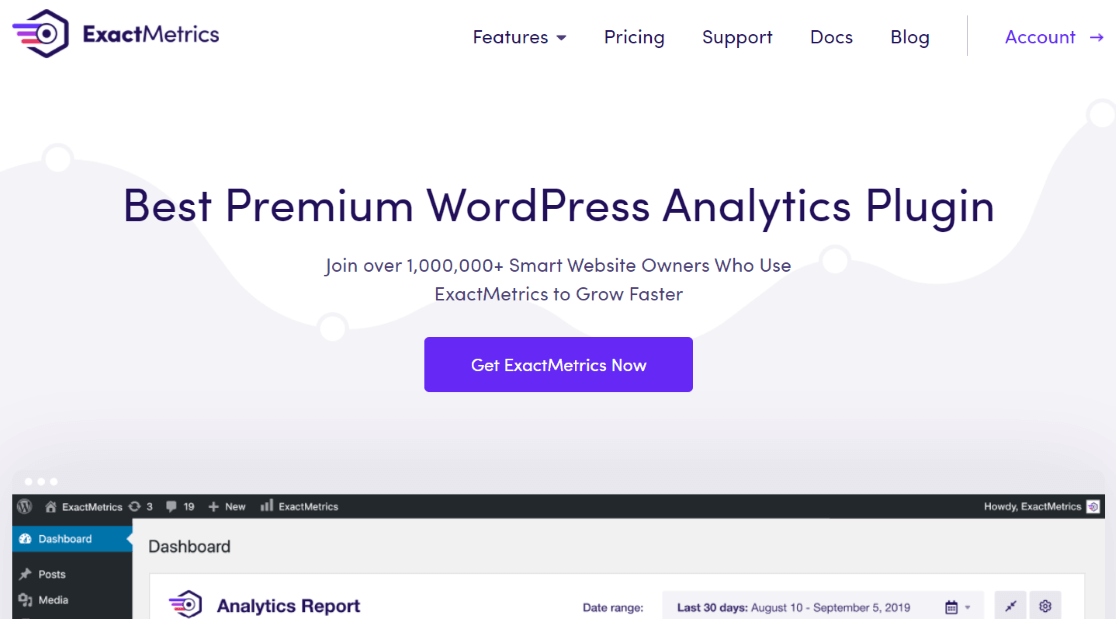Are you trying to understand the difference between Jetpack Stats and Google Analytics? Both tools can provide valuable insights about your website, but there are some significant differences in what they offer and how they can be used.
In this article, we’ll take a closer look at Jetpack Stats and Google Analytics so you can decide which one best aligns with your website and your goals. We’ll cover each platform’s key features and capabilities to help you make an informed choice for your business.
Whether you’re a website owner new to analytics or looking to switch from one tool to another, this comparison will give you a clear understanding of how Jetpack Stats and Google Analytics differ and which one might be better.
Let’s dive in!
Jetpack Stats vs. Google Analytics
Let’s first look at exactly what Google Analytics and Jetpack Stats are so you can understand the core differences between the two platforms.
What Is JetPack Stats?
Jetpack Stats is a built-in analytics feature within the popular Jetpack plugin for WordPress. Rather than being a standalone tool like Google Analytics, Jetpack Stats provides a simple overview of your website’s traffic and engagement metrics right in your WordPress dashboard.
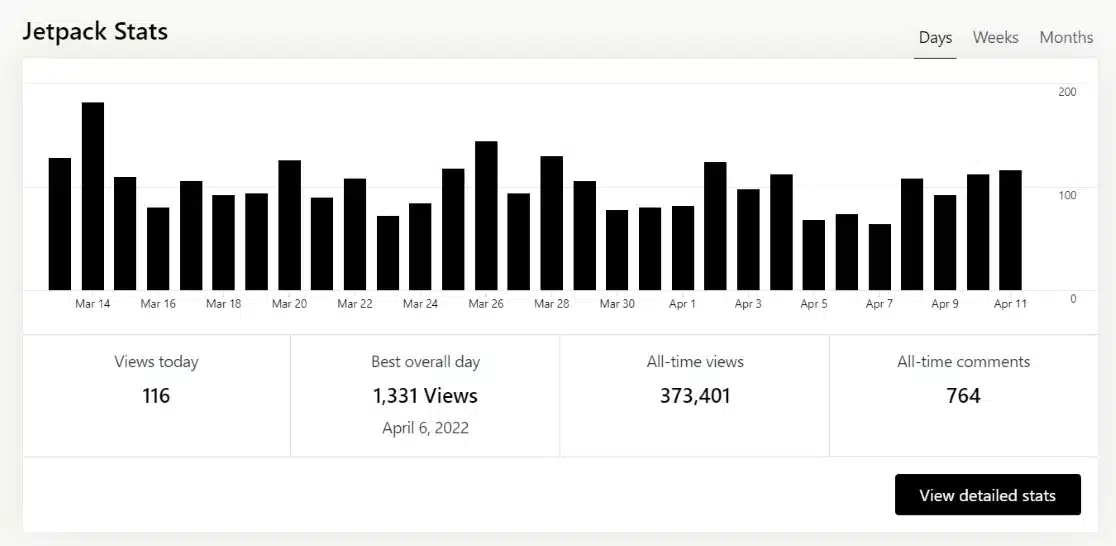
Jetpack is a suite of tools and features developed by Automattic, the company behind WordPress.com. While the complete Jetpack plugin offers a range of functionality, from security and performance enhancements to content creation and social sharing, the Stats module is one of its core components.
Pros:
- Quick traffic insights: Jetpack Stats gives you an at-a-glance view of your website’s key performance indicators, such as total visits, top content, and referral sources. This makes it easy to understand how your site is performing quickly.
- Beginner-friendly: Compared to the depth and complexity of Google Analytics, Jetpack Stats has a streamlined and approachable interface. This makes it a good option for website owners new to analytics.
- Author-level tracking: In addition to overall site stats, Jetpack Stats also provides data on the performance of individual authors’ content, helping you identify your top writers.
Cons:
- Limited functionality: While convenient, Jetpack Stats only offers basic traffic and engagement metrics. It lacks the advanced reporting, segmentation, and customization capabilities of more robust analytics platforms like Google Analytics.
- Tied to Jetpack plugin: Jetpack Stats is not available as a standalone tool – it can only be accessed by installing the full Jetpack plugin on your WordPress site. This may not be ideal if you don’t need or want the other Jetpack features.
- Paid for commercial sites: As of 2024, the free version of Jetpack Stats is only available for non-commercial websites. If you’re running a business site with monetization, you’ll need to pay for a Jetpack subscription to access the stats.
Jetpack Stats provides a simple way to monitor your WordPress site’s performance. Still, it falls short of the comprehensive data and analysis available through enterprise-level tools like Google Analytics.
What Is Google Analytics?
Google Analytics is the industry-standard solution for tracking visitors’ interactions with your website. It provides incredibly detailed information on your audience, giving you deep insights into how people find and engage with your site.
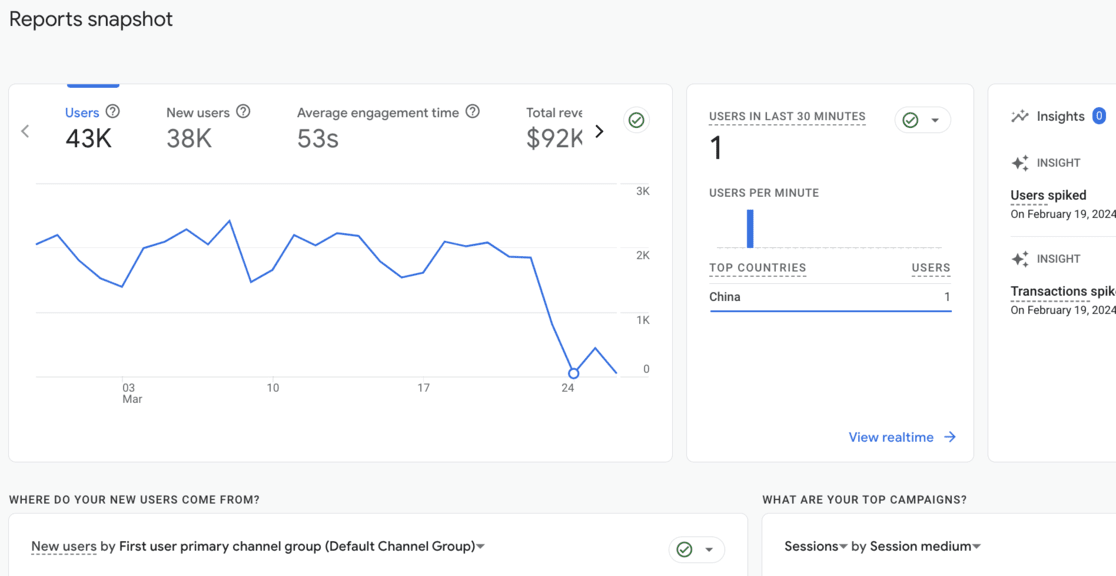
As the most comprehensive analytics tool on the market, Google Analytics gives you all the data you need to understand your visitors. This allows you to improve user engagement and ultimately boost revenue for your business.
Pros:
- Comprehensive data: You’ll find detailed information on everything from visitor demographics and behavior to eCommerce transactions and marketing campaign performance. Google Analytics has features to track virtually any metric you’re interested in.
- Powerful reporting: The platform provides advanced reporting capabilities, allowing you to dive deep into the data and better understand your marketing efforts and their impact.
- Free to use: Google Analytics is a free service, making it an accessible and cost-effective solution for websites of all sizes, from small blogs to large enterprises.
Cons:
- Complex setup: To use Google Analytics, you must manually add a tracking code to every website page. Setting up more advanced tracking, such as for eCommerce or form submissions, also requires additional configuration.
- Information overload: With so much data available, Google Analytics can feel overwhelming, especially for users new to web analytics. Navigating all the reports and features can be a learning curve.
Overall, Google Analytics is a potent tool that provides unparalleled insights into your website’s performance. While the setup may be more involved than some alternatives, the depth of data and reporting capabilities make it an industry-leading solution for serious website owners and marketers.
The main distinction is that Google Analytics is a standalone, enterprise-level analytics platform, while Jetpack Stats is a more lightweight, WordPress-specific solution.
This means the depth and breadth of data available varies quite a bit between the two.
Let’s look at how they stack up regarding data accuracy.
Date Accuracy: Jetpack Stats vs. Google Analytics
Regarding data accuracy and reliability, there are some key differences between Jetpack Stats and Google Analytics.
Jetpack Stats Accuracy:
Jetpack Stats provides fairly accurate high-level metrics about your website’s traffic and engagement. Since it’s integrated directly with your WordPress site, it can track visitors, page views, referrals, and other basic stats. However, Jetpack Stats does have some limitations:
- It may undercount specific traffic, especially from users with ad blockers or other privacy-focused browsers/tools.
- The data can be delayed by up to 24 hours so that you won’t see real-time updates.
- Jetpack Stats doesn’t provide granular data on user behavior, demographics, and advanced metrics.
Google Analytics Accuracy:
Google Analytics is widely regarded as the industry standard for web analytics due to its robust data collection and processing capabilities. Some key advantages of Google Analytics data accuracy include:
- It uses a sophisticated tracking code to view site traffic and user interactions comprehensively.
- Provides real-time data updates to give you the freshest insights.
- Advanced algorithms and machine learning help fill in data gaps and improve the accuracy of metrics like user demographics.
- Integration with other Google products (Ads, Search Console, etc.) provides additional validation and enrichment of the data.
The tradeoff is that setting up Google Analytics requires more technical expertise to ensure proper implementation and data integrity. However, Google Analytics is generally more robust and reliable for websites focused on advanced analytics and data-driven decision-making than the more basic Jetpack Stats.
What Tool Should You Choose: Jetpack Stats vs. Google Analytics
Regarding website analytics, Google Analytics is generally the superior choice compared to the more basic Jetpack Stats.
Google Analytics provides far more comprehensive, accurate, and detailed data about your website’s traffic and user behavior, offering real-time reporting, advanced segmentation, eCommerce tracking, goal/conversion monitoring, and a wealth of other powerful features that make it the go-to solution for serious website owners and data-driven marketers.
However, setting up Google Analytics can be more technical compared to the plug-and-play simplicity of Jetpack Stats, which may overwhelm less tech-savvy users.
Fortunately, a solution that makes Google Analytics much more user-friendly for WordPress users is ExactMetrics.
This premium Google Analytics plugin for WordPress streamlines the setup and usage of the platform, allowing you to connect your site quickly, access advanced features and reports directly within your dashboard, set up powerful tracking, and leverage built-in optimization recommendations, all without the need for extensive technical knowledge.
So, if you’re looking to harness the power and accuracy of Google Analytics but don’t want to deal with the technical complexity, ExactMetrics is an excellent solution that bridges the gap, allowing you to take advantage of the full potential of Google Analytics within a user-friendly WordPress plugin.
Let’s take a look at ExactMetrics.
ExactMetrics As a Jetpack Stats Alternative
ExactMetrics makes Google Analytics both user-friendly and straightforward. Plus, you can use its free version whether your site is commercial or not.
To learn more, read about the free version of ExactMetrics.
Or, grab a license to get a lot more stats than you’ll find in Jetpack Stats.
ExactMetrics allows you to leverage the full potential of all the powerful Google Analytics features without needing to be tech-savvy. It takes the pain out of Analytics setup and makes it easier for WordPress users to set up without touching any code.
Plus, it lets you see your traffic stats at a glance in your WordPress dashboard —just like Jetpack Stats, but without all the downsides.
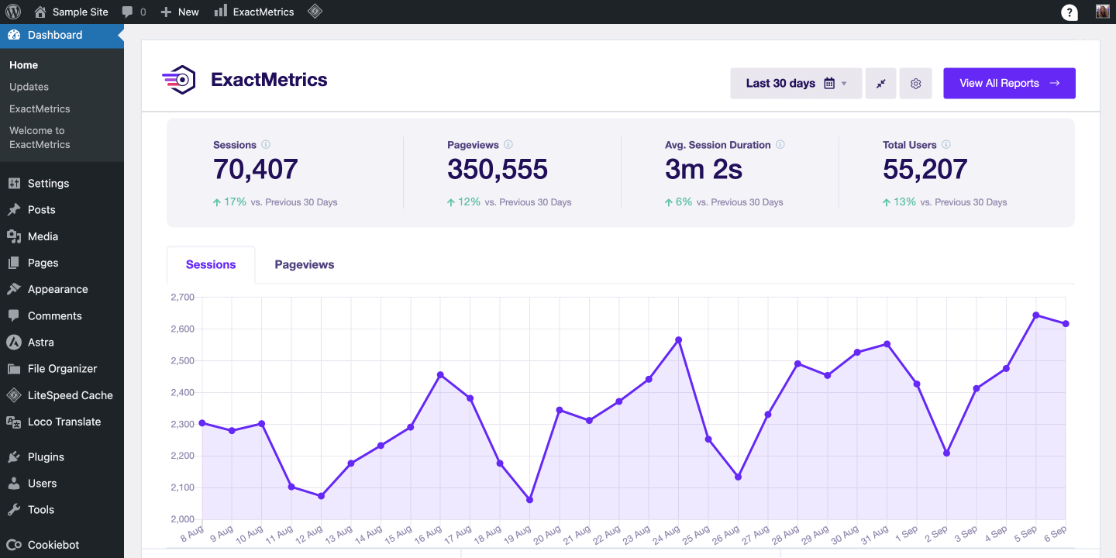
Let’s examine some of the other significant differences between Jetpack Stats and ExactMetrics.
1. Overview Report
Jetpack Stats provides a simple, high-level overview of your site’s traffic, showing basic metrics like page views, visits, and referral sources. While convenient, this built-in WordPress.com feature lacks the depth and details of a more robust analytics solution.
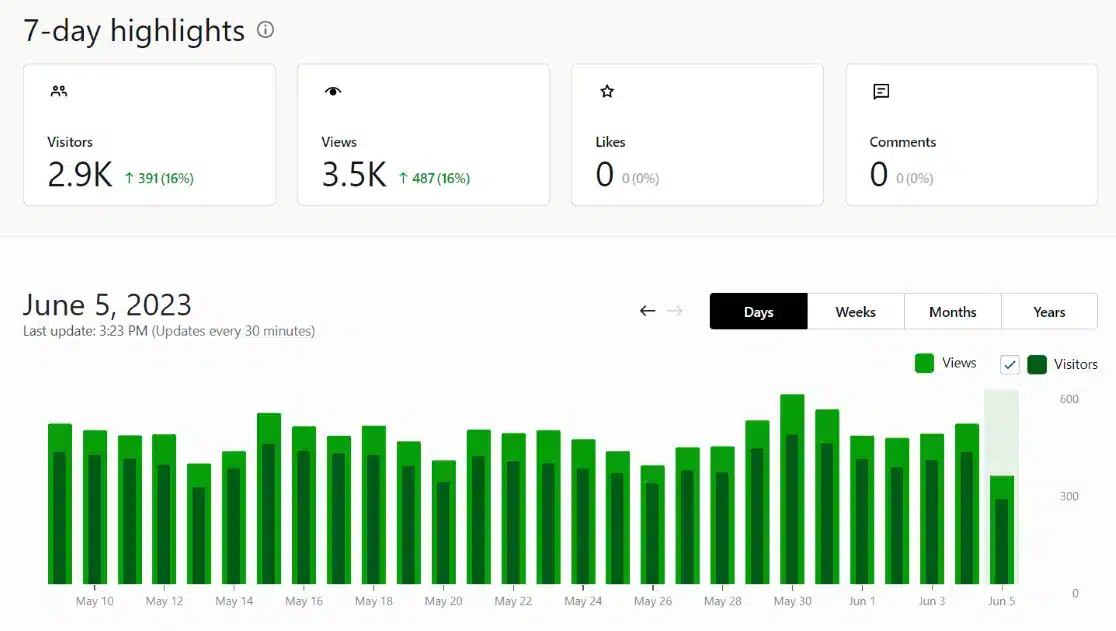
In contrast, ExactMetrics allows you to harness the full power of Google Analytics within your WordPress dashboard.
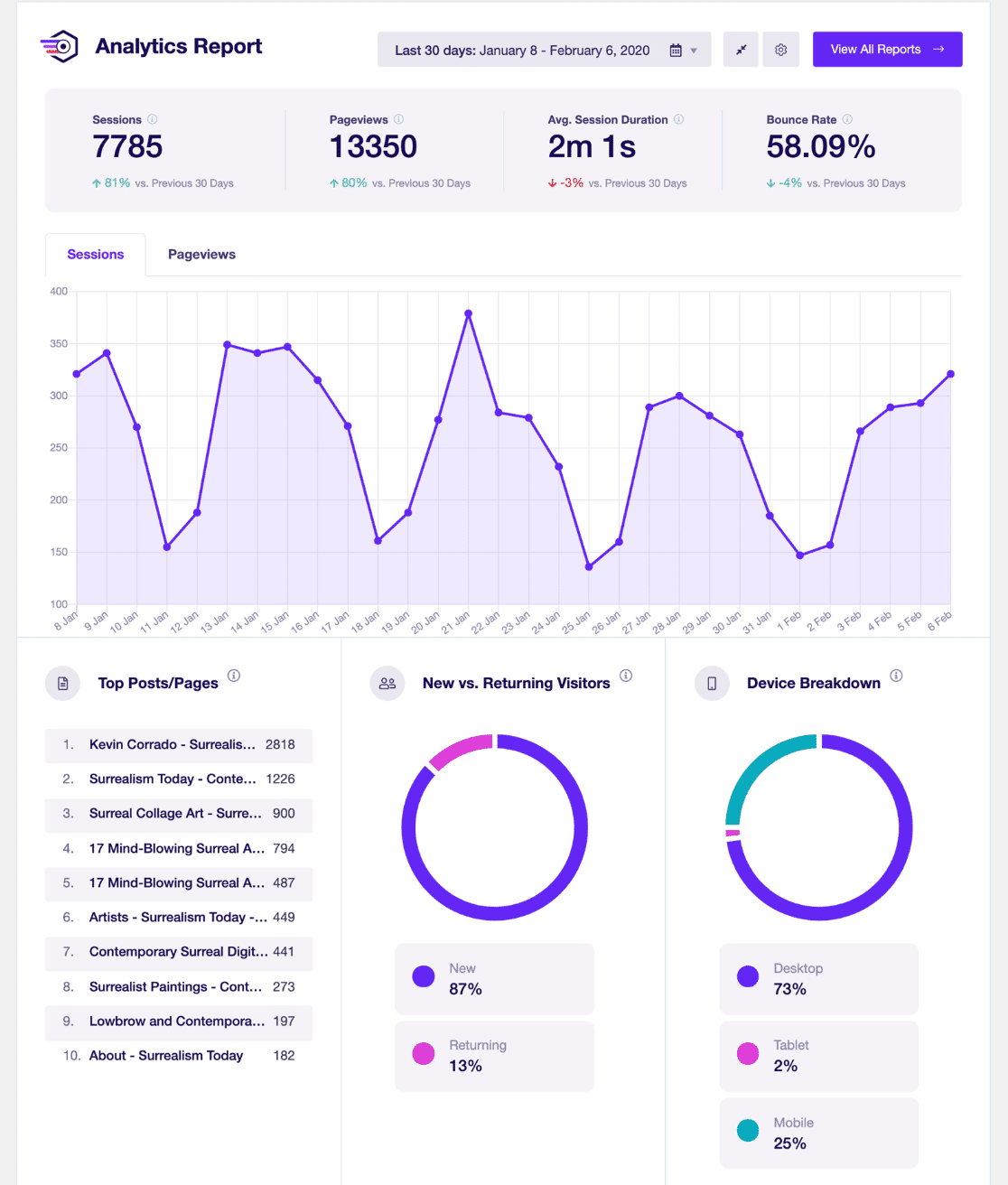
By seamlessly integrating with the industry-leading analytics platform, ExactMetrics gives you access to comprehensive data, advanced reporting, and powerful tracking features that go far beyond the basic statistics offered by Jetpack Stats.
2. Specialized Features for WordPress Users
Jetpack Stats is bundled with a suite of other Jetpack tools, including various features you might not need.
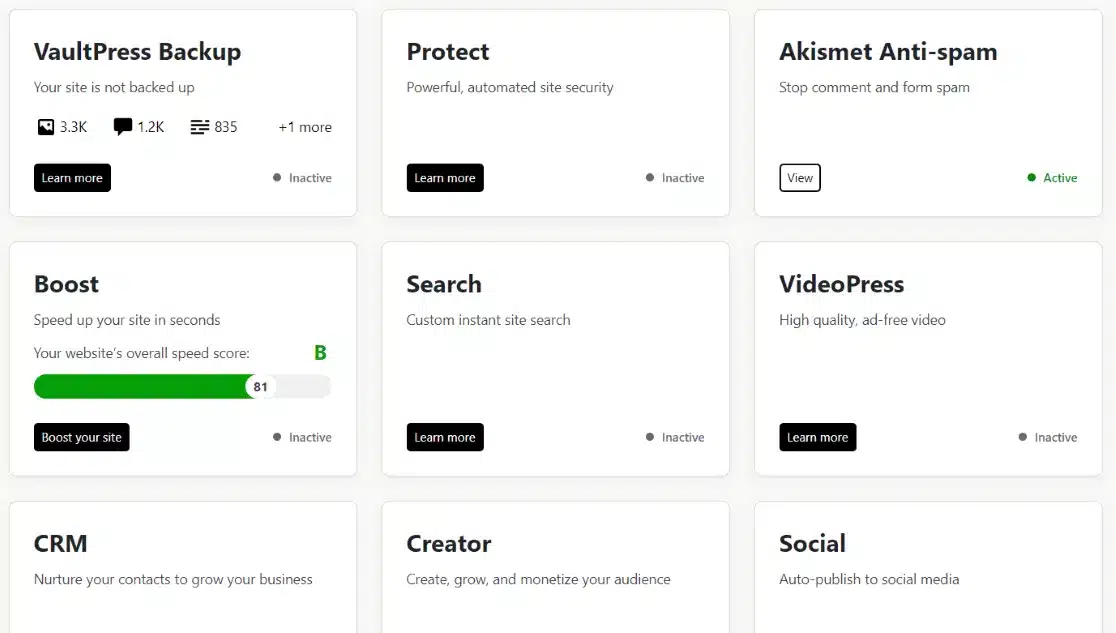
ExactMetrics pulls and displays the most essential metrics directly within the WordPress dashboard. This provides site owners with at-a-glance access to their critical performance data without constantly switching between platforms.
Additionally, ExactMetrics offers a range of advanced addon features that allow users to customize their analytics experience.
This includes capabilities like enhanced eCommerce tracking, campaign tracking, form conversion monitoring, and the ability to set up custom dimensions and events – features that are not included in the basic reporting available in Jetpack Stats.
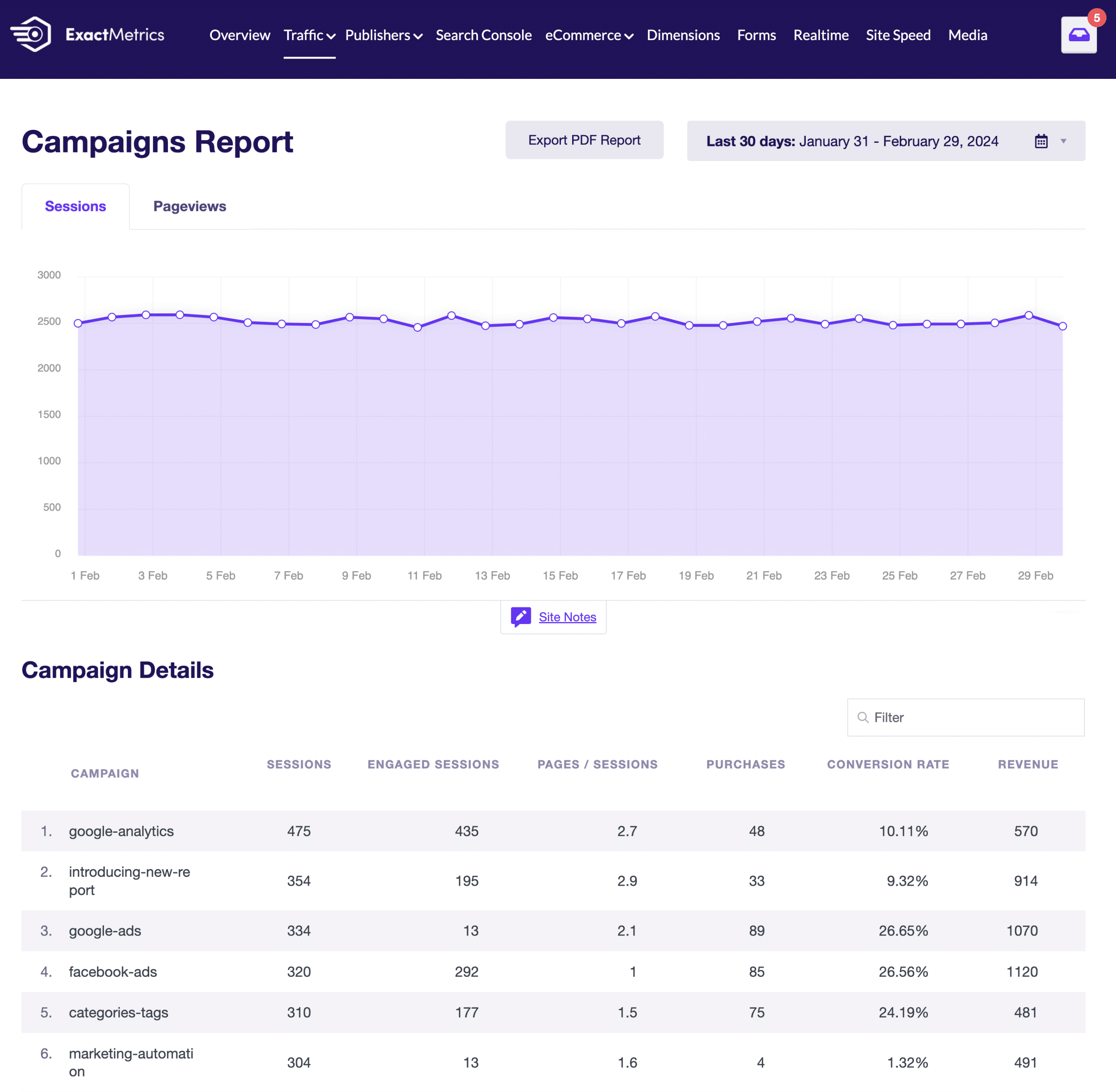
Basically, you get to tailor your analytics to provide precisely what you need and are most interested in.
3. eCommerce Tracking with ExactMetrics
For eCommerce store owners, ExactMetrics offers a powerful solution for tracking shopping behavior and revenue data.
ExactMetrics’ eCommerce tracking features give you a comprehensive view of your online store’s performance. This is something Jetpack Stats does not offer at all.
You can integrate Google Analytics eCommerce tracking directly into your WooCommerce, Easy Digital Downloads, or MemberPress-powered store with just a few clicks.
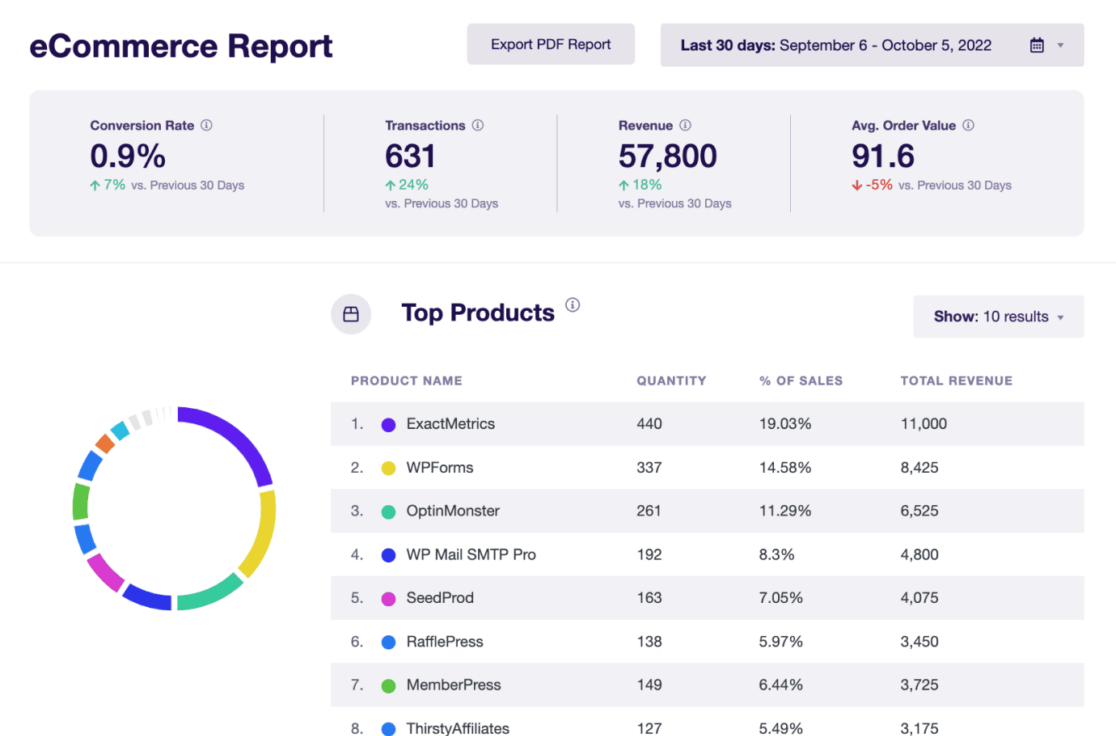
This allows you to monitor your store’s sales data and analyze the revenue generated through your website within the Google Analytics reporting interface.
Leveraging this eCommerce data empowers you to make more informed, data-driven decisions to increase sales and revenue for your online business.
4. Form Conversion Tracking with ExactMetrics
Optimizing your website’s forms is crucial for boosting conversions and growing your audience. ExactMetrics makes tracking your form views and submissions easy without manually editing code.
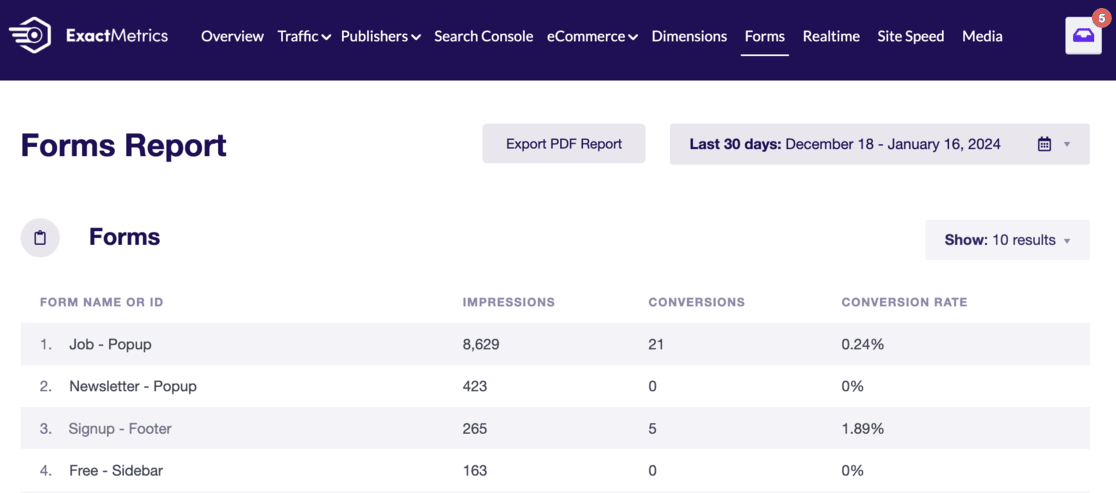
Enable the forms tracking feature within ExactMetrics, and you can access your form performance data directly from your WordPress dashboard. This provides valuable insights that can help you refine and optimize your forms for maximum impact.
In contrast, Jetpack Stats does not offer this advanced form conversion tracking capability.
5. Custom Dimensions and Events with ExactMetrics
While Jetpack Stats provides a fixed set of metrics, ExactMetrics allows you to extend your WordPress dashboard analytics in powerful ways.
With custom dimensions, you can track a wide range of additional data points relevant to your website, such as logged-in user information, post types, authors, categories, publication dates, tags, SEO scores, and focus keywords.
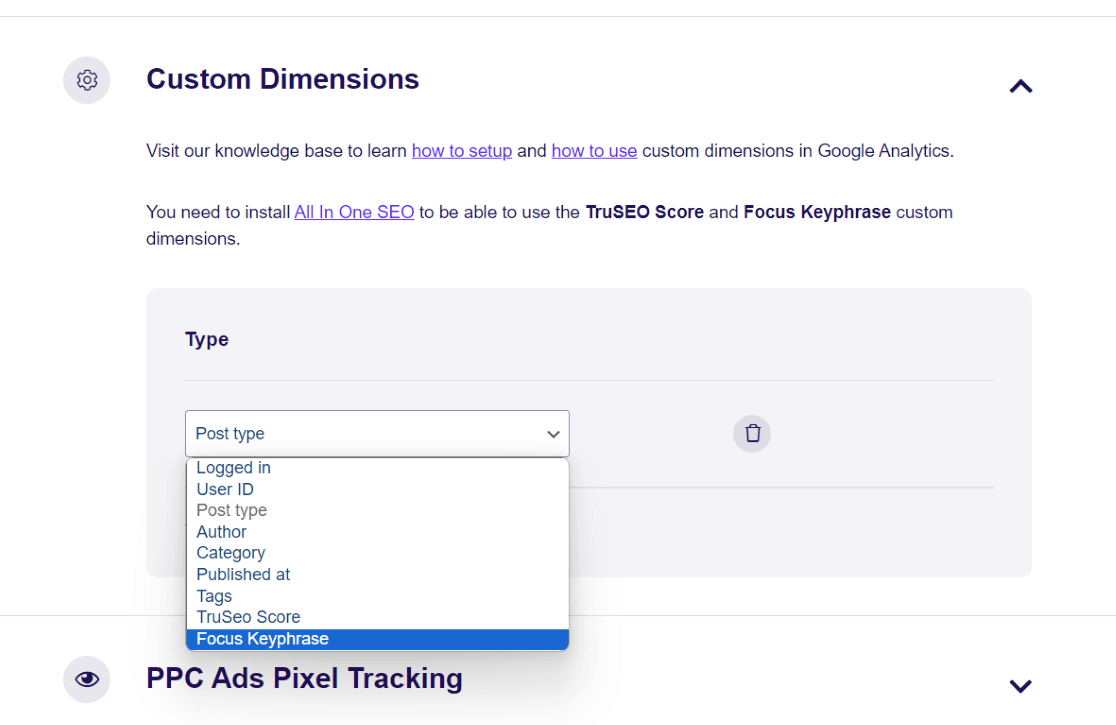
This allows you to gain more profound, tailored insights into your audience and content performance.
Furthermore, ExactMetrics lets you set up custom events, such as tracking button clicks or other user interactions.
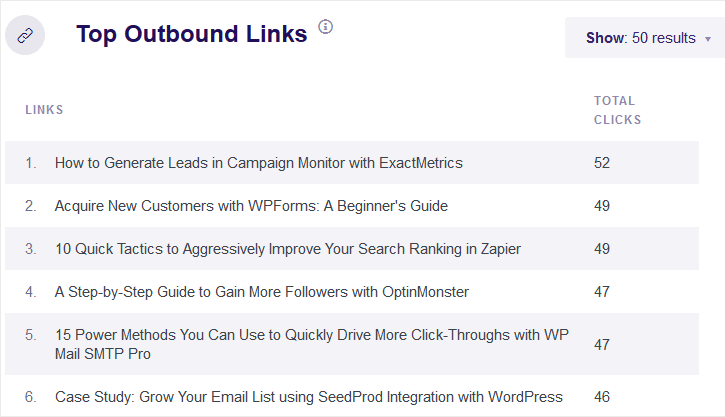
Read more about setting up custom dimensions and events.
Frequently Asked Questions
How do I get traffic stats with Jetpack Stats?
Jetpack Stats provides basic website traffic insights directly in your WordPress dashboard. Enable the Jetpack plugin, go to the Jetpack dashboard, and view your site’s visits, views, likes, and comments.
Is Jetpack Stats the same as Google Analytics?
No, Jetpack Stats and Google Analytics are not the same. Jetpack Stats offers limited traffic reporting, while Google Analytics provides much more comprehensive, detailed, and customizable website analytics and user behavior tracking.
Is Jetpack Stats worth having?
Jetpack Stats can be helpful for quick, basic traffic overviews, especially for non-commercial websites using the free version. However, more robust tools like Google Analytics or ExactMetrics provide excellent value and insights for advanced analytics needs.
What is the best free alternative to Jetpack Stats?
ExactMetrics is an excellent free alternative to Jetpack Stats, as it seamlessly integrates your WordPress site with the full power of Google Analytics, offering comprehensive reporting, user-friendly dashboards, and advanced features beyond basic traffic metrics.
We hope you liked this article and found it helpful in understanding the difference between Jetpack Stats and Google Analytics.
If you enjoyed it, be sure to check out:
- How Does Google Analytics Work? (Ultimate Beginner’s Guide)
- 8 Types of Google Analytics Reports to Track (The Best Ones)
- How to Create Google Analytics 4 Custom Exploration Reports
Still not using ExactMetrics? What are you waiting for?
Don’t forget to follow us on X and Facebook to see all the latest Google Analytics tutorials.


